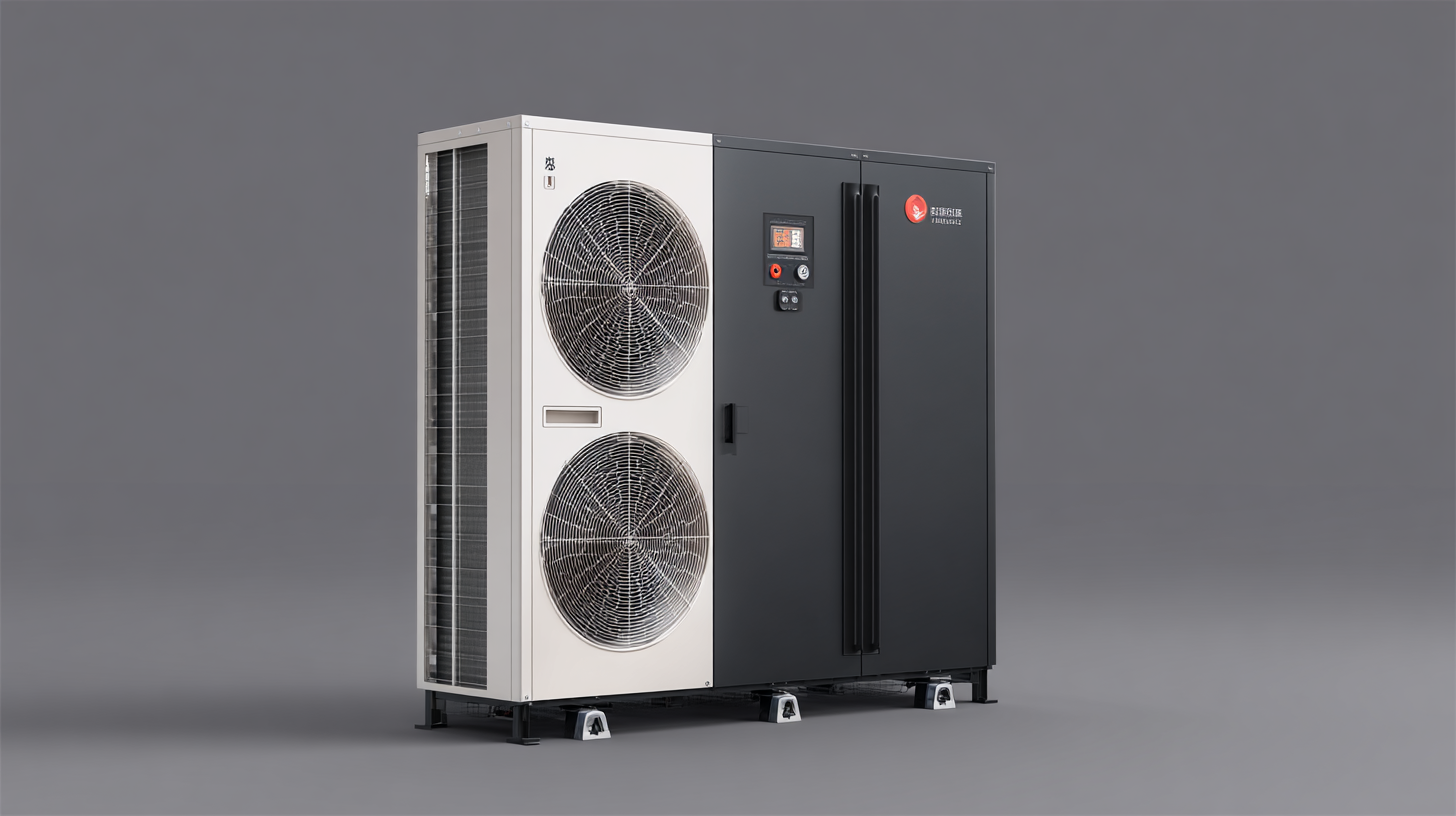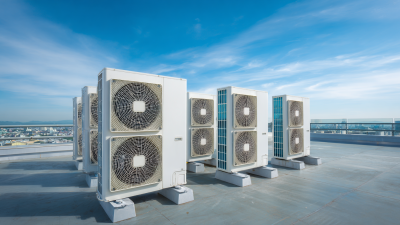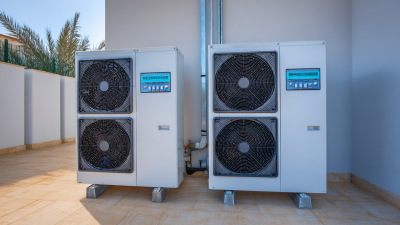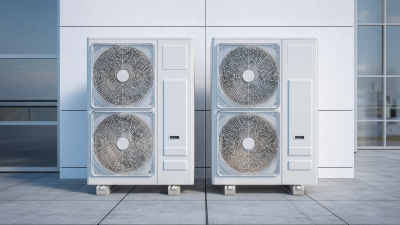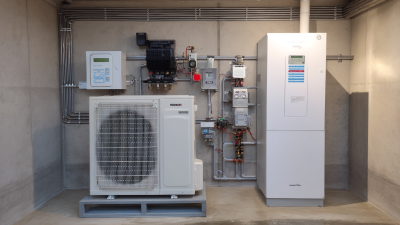Leave Your Message
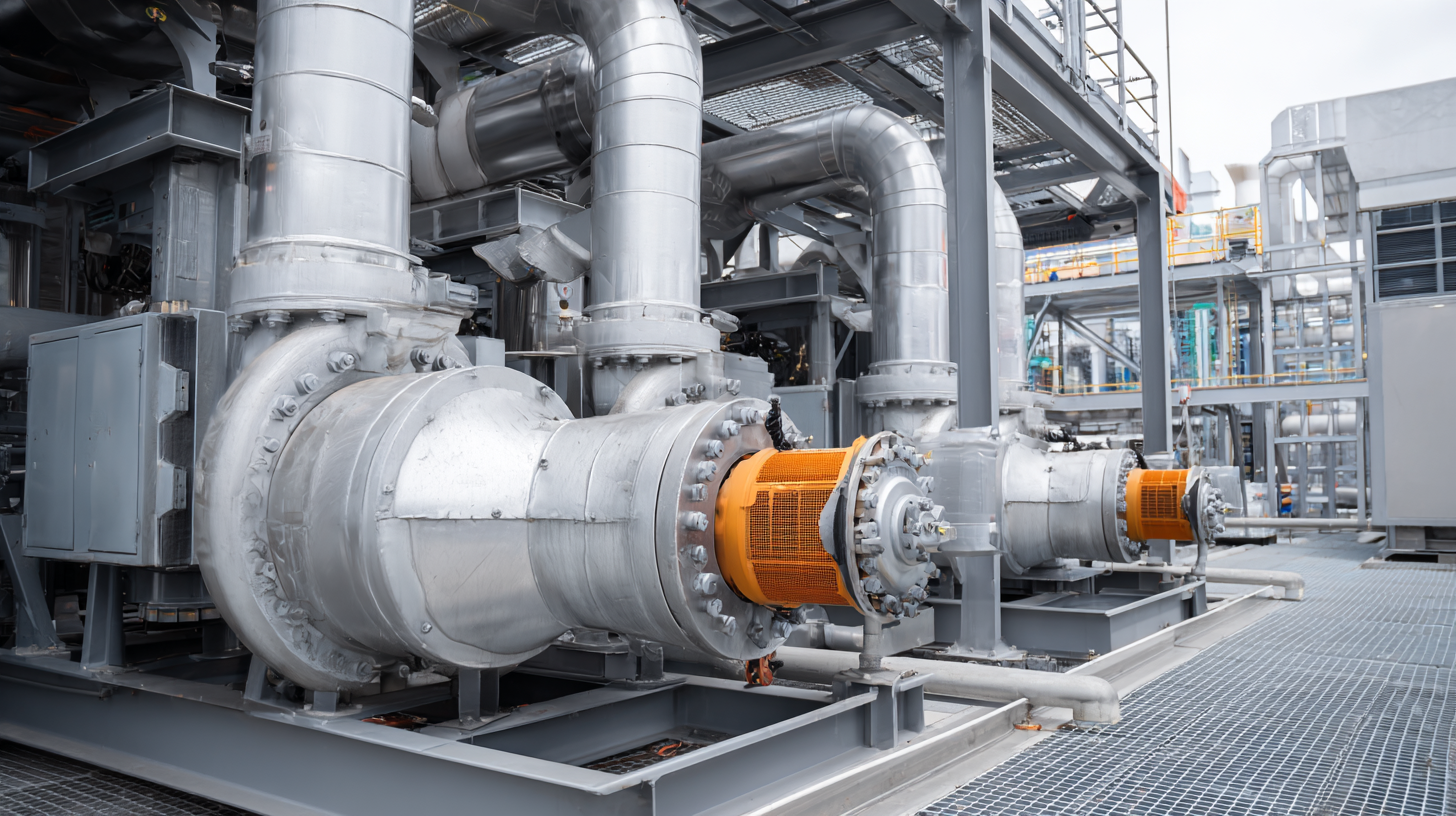 In recent years, the industrial sector has increasingly turned to innovative technologies to enhance energy efficiency and reduce carbon emissions, with High Temperature Heat Pumps (HTHPs) emerging as a key player in this transformation. According to a report by the International Energy Agency, industrial processes account for approximately 30% of global energy consumption, and significant savings can be achieved through the adoption of energy-efficient heating solutions. HTHPs operate at higher temperatures than traditional heat pumps, providing a versatile solution for industries requiring heat above 100°C. This capability not only supports decarbonization efforts but also enables facilities to optimize their processes while decreasing operational costs. As industries worldwide strive to meet stringent environmental regulations and improve sustainability practices, understanding the unique benefits of High Temperature Heat Pumps is more critical than ever in driving technological advancement and achieving energy efficiency goals.
In recent years, the industrial sector has increasingly turned to innovative technologies to enhance energy efficiency and reduce carbon emissions, with High Temperature Heat Pumps (HTHPs) emerging as a key player in this transformation. According to a report by the International Energy Agency, industrial processes account for approximately 30% of global energy consumption, and significant savings can be achieved through the adoption of energy-efficient heating solutions. HTHPs operate at higher temperatures than traditional heat pumps, providing a versatile solution for industries requiring heat above 100°C. This capability not only supports decarbonization efforts but also enables facilities to optimize their processes while decreasing operational costs. As industries worldwide strive to meet stringent environmental regulations and improve sustainability practices, understanding the unique benefits of High Temperature Heat Pumps is more critical than ever in driving technological advancement and achieving energy efficiency goals.
High temperature heat pumps (HTHPs) are revolutionizing industrial applications by enhancing energy efficiency and reducing carbon footprints. These innovative systems operate by transferring heat from a lower temperature source and delivering it at elevated temperatures, typically ranging from 80°C to 150°C. According to a recent report by the International Energy Agency, implementing HTHPs can lead to emission reductions of up to 50% for certain industrial processes, such as food production and chemical manufacturing. By leveraging advanced refrigerant technologies and sophisticated control systems, HTHPs not only optimize energy consumption but also significantly extend the operational capabilities of heat-producing equipment.
Tip: When considering HTHP systems for your facility, it’s crucial to evaluate the specific temperature requirements and the type of processes involved. Conducting a detailed energy audit can help identify the most promising applications for heat pump integration.
The mechanisms behind these heat pumps involve vapor compression or absorption technologies that enable them to efficiently harness renewable energy sources and waste heat. For instance, in a recent case study published by the European Heat Pump Association, an industrial plant utilizing HTHPs achieved an annual energy savings of 30%, largely due to the reduction of fossil fuel reliance. This not only enhances productivity but also aligns with global sustainability targets.
Tip: Engaging with experienced suppliers who specialize in industrial heat pump solutions can help ensure optimal system design and integration, ultimately maximizing returns on investment in energy efficiency.
High temperature heat pumps (HTHPs) have emerged as an innovative solution for industrial applications, offering several key advantages that align with the global shift towards sustainability. One of the primary benefits of implementing high temperature heat pumps in manufacturing is their ability to efficiently utilize waste heat. According to the International Energy Agency (IEA), over 50% of industrial energy use is wasted as heat. By harnessing this waste heat, HTHPs can help reduce overall energy consumption and improve process efficiency, thus contributing to both operational savings and reduced carbon emissions.
Another significant advantage is the alignment with “dual carbon” goals and national green development policies, which prioritize electrification and clean energy sources. As underscored in a recent report by the IEA, the transition to cleaner electricity supply has become critical in achieving climate targets, and industries implementing HTHPs can significantly mitigate their carbon footprint. These systems not only provide high-temperature heating with reduced greenhouse gas emissions but also position manufacturers as leaders in sustainable practices. Implementing HTHPs can lead to competitive advantages in a market increasingly driven by environmental accountability and regulatory pressures.
High temperature heat pumps (HTHPs) are becoming increasingly essential for industrial applications, particularly due to their remarkable cost savings and energy efficiency. By harnessing waste heat and upgrading it to a higher temperature, HTHPs allow industries to reduce their dependency on conventional heating sources, which often come with high operational costs. This not only leads to significant financial savings but also promotes sustainability.
**Tip:** To maximize the benefits of high temperature heat pumps, industries should regularly assess their heat recovery systems. Proper maintenance and optimization of existing infrastructure can further enhance energy efficiency and reduce operational costs.
In addition to direct cost savings, HTHPs significantly decrease energy consumption. By substituting electric resistance heating or fossil fuels, these systems can dramatically lower greenhouse gas emissions. This transition not only aligns with global sustainability goals but also improves a company's market competitiveness by reinforcing its commitment to environmentally friendly practices.
**Tip:** Consider implementing a phased approach to integrate high temperature heat pumps into your operations. This allows for careful monitoring and adjustment, ensuring that energy savings are realized without compromising productivity.
| Application Area | Cost Savings (%) | Energy Efficiency (COP) | Temperature Range (°C) | Environmental Impact |
|---|---|---|---|---|
| Chemical Processing | 25% | 4.5 | 90-150 | Reduced CO2 Emissions |
| Food & Beverage | 30% | 5.0 | 70-120 | Sustainable Practices |
| Pharmaceuticals | 20% | 3.8 | 85-130 | Lower Energy Usage |
| Textile Industry | 18% | 4.2 | 60-110 | Reduced Waste |
High temperature heat pumps (HTHPs) are increasingly becoming a focal point in industrial applications, showcasing impressive real-world success stories that demonstrate their effectiveness in energy efficiency and operational cost savings. According to a report by the International Energy Agency (IEA), implementing HTHPs in industrial settings could reduce energy consumption by up to 30% while lowering greenhouse gas emissions significantly. One striking example is a leading chemical manufacturer that integrated HTHPs into their steam production process. By doing so, they not only minimized their reliance on traditional fossil fuels but also achieved an annual savings of nearly $500,000 due to reduced energy costs.
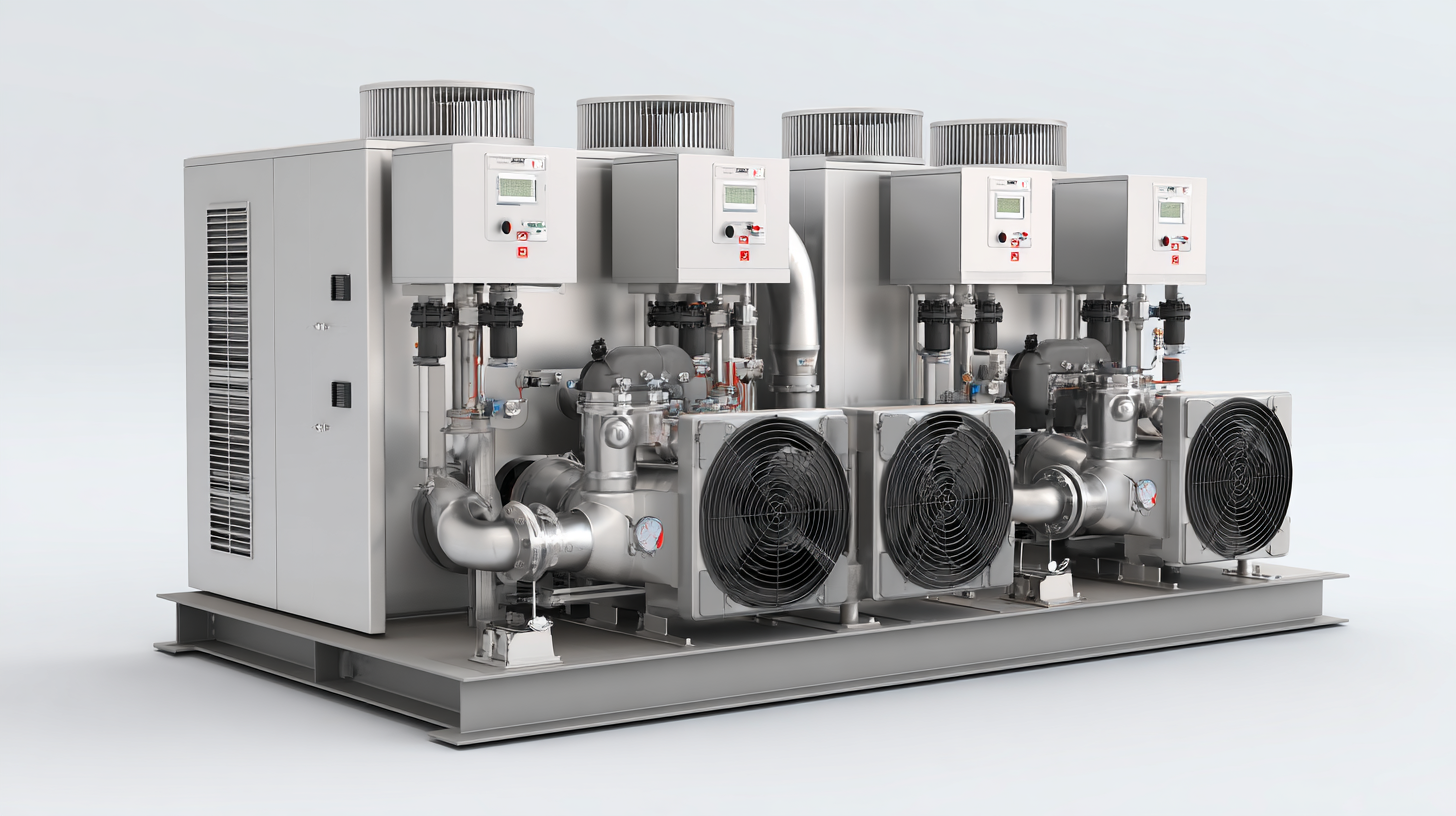
Another compelling case comes from the automotive industry, where a major car manufacturer adopted high temperature heat pump technology to enhance their paint drying process. This transition enabled them to utilize waste heat more effectively, leading to a 20% reduction in energy consumption. Studies by the American Society of Heating, Refrigerating and Air-Conditioning Engineers (ASHRAE) suggest that industries utilizing HTHPs could see payback periods of less than three years, making it a financially viable solution. The success stories of high temperature heat pumps exemplify their role as a game-changer in achieving sustainability and cost efficiency in various industrial applications.
As industries continuously seek energy efficiency and cost reduction, high temperature heat pumps are emerging as a transformative solution. Recent reports indicate that these systems can achieve temperature outputs of up to 160°C, making them suitable for various industrial processes that traditionally rely on fossil fuels. According to a study by the International Energy Agency (IEA), the adoption of high temperature heat pump technologies could reduce industrial CO2 emissions by more than 10% by 2030. This shift not only aligns with global sustainability goals but also fosters significant energy savings, as high temperature heat pumps can use renewable energy sources like waste heat and biomass to power operations.
Looking ahead, innovations in high temperature heat pump technologies are set to further enhance their applicability across multiple sectors. The development of advanced refrigerants and improved system designs promises to increase efficiency levels. A report from the European Heat Pump Association indicates that the market for high temperature heat pumps could expand by 40% in the next five years, driven by increasing government incentives and stringent emissions regulations. As industries evolve, integrating these innovative high temperature heat pump solutions will be crucial for maintaining competitiveness while contributing to a more sustainable future.
